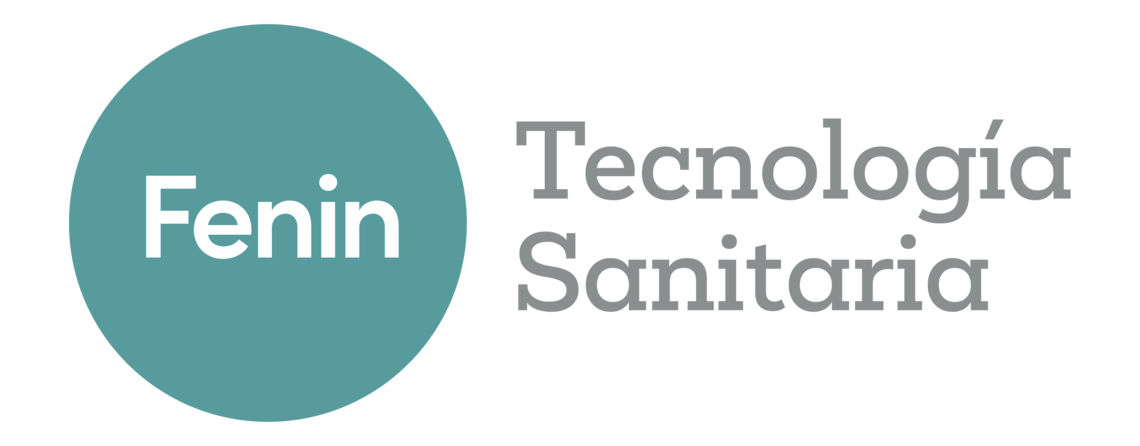
Certificate
Scientific endorser
Scientific endorser

The world's largest faculty of medicine”
Description
If you are a doctor, head of service or section, assistant, coordinator, director or manager in a hospital or outpatient care center, and you want to update and develop your management skills to respond to the current reality and context in your professional future, this is the perfect postgraduate program for you”

In the health structure, medical divisions are fundamental in performing different health processes, where the paradigm of Clinical Management is increasingly imposed, making it necessary to provide training in this area for physicians who develop or may reach positions of responsibility in health care, either in middle management, health care or in medical director and manager positions.
There are many new challenges in the sector which must be addressed, such as the approach to complex and chronic diseases, the relationships between professional groups, citizens (users, patients, clients) and providers and the development of new health technologies.
There is also the need to increase efficiency in the use of resources to assume the new participative and transparent form of leadership; and to gain a position in the interdisciplinary team.
In order to contextualize the program, a review of health systems and policies, as well as the administrative process, is presented first, followed by considerations on the care and medical division and its role in the system. In the area of service management, the Clinical Management of Healthcare services, the management of the organization's people, talent, professionals, and the management of investments and economic evaluation stand out. Fundamental aspects in the daily activity of health managers.
It will also focus on all aspects related to the management of hospital and outpatient services and, specifically, on the quality of care in the centers and their different departments.
In addition, there will be a series of units focused on improving management skills in specific areas such as care for complexity and chronicity, alternatives to traditional hospitalization, the use of new technologies in the sector, evidence-based medicine and prudent prescribing, clinical safety, etc.
On the other hand, we will have modules on personal and health marketing from the development of personal branding, to the management of social networks and customer service and, finally, the research methodology required to work in Clinical Management will be assessed.
The professional master’s degree in Clinical Management, Medical and Healthcare Administration, will qualify you to occupy a position of responsibility as head of service or section”
This professional master’s degree in Clinical Management, Medical and Healthcare Administration contains the most complete and up-to-date scientific program on the market. The most important features include:
- Development of practical cases carried out by experts in health management and other specialties
- The graphic, schematic, and practical contents with which they are created provide scientific and practical information on the situations that regularly occur in the hospital setting
- Presentation of practical workshops on procedures and decision making
- Algorithm-based interactive learning system for decision-making in the situations that are presented to the student
- Action protocols, where you can find the latest trends in health management
- All of this will be complemented by theoretical lessons, questions to the expert, debate forums on controversial topics, and individual reflection assignments
- With a special emphasis on scientific methods and research methodologies in health management
- Content that is accessible from any fixed or portable device with an Internet connection
This professional master’s degree is the best investment you can make when selecting a training program for two reasons: in addition to qualifying you as a clinical manager, you will obtain a qualification endorsed by TECH”
The teaching staff includes a team of prestigious healthcare management professionals, who bring their experience to this program, as well as renowned healthcare specialists, who complement the program by adding interdisciplinary elements.
The multimedia content developed with the latest educational technology will provide doctors with situated and contextual learning, i.e., a simulated environment that will provide an immersive learning program to practice in real situations.
This program is designed around Problem-Based Learning, through which the physician must try to solve the different professional practice situations that arise throughout the program. For this purpose, they will be supported by an innovative interactive video system developed by renowned experts in the field of Health Management, with extensive teaching experience.
You will be able to complete the professional master’s degree 100% online, adapting it to your needs and making it easier for you to take it while you carry out your full-time healthcare activity"

Increase the quality of your management with this program and improve patient care"
Objectives
The professional master’s degree in Clinical Management, Medical and Healthcare Administration offers a detailed, state-of-the-art, professional training program from an eminently practical point of view, in a time where accredited knowledge is essential, including the latest trends in Leadership for Healthcare Services Managers.

This program will generate a sense of confidence in the performance of Medical and Clinical Management, and will help you grow professionally”
General objectives
- Analyze the theories and models of the organization and working of healthcare systems, focusing on their political, social, legal and economic foundations and their organizational structure
- Improve knowledge and professional skills in health management from a Clinical Management perspective, while becoming familiar with the practical methodological tools that apply to the critical areas of both institutional and everyday health management
- Approach Clinical Management from the criteria of efficacy, efficiency, effectiveness, equity, performance and profitability and the solution of problems through the adequate use of information systems
- Describe the principles of clinical management that facilitate planning, organization, management and assessment at a center, service or healthcare unit
- Demonstrate and assess advanced initiatives and experiences in Clinical and Health Management
- Train professionals to improve their problem-solving and decision-making using basic skills in daily clinical and healthcare management
Specific objectives
Module 1. Management and Economic Assessment
- Understand and know how to carry out an economic analysis of the functioning of health institutions and the economic behavior of the agents involved in health systems
- Incorporate the fundamental concepts of the techniques and instruments of economic evaluation applied to management practices in healthcare systems
- Incorporate integrated procurement systems from a centralized purchasing perspective for efficient and multidisciplinary operation
Module 2. People and Talent Management
- Establish the rights and duties of a medical entity in the management of people
- Get to know the right to collective bargaining, representation and institutional participation
- Recognize and develop the professional talent of people by integrating new tools for employability in the public and private sectors
Module 3. Clinical Management
- Understand, interpret, transmit and apply regulatory norms for the activities and functions of health professionals in Clinical Management, in accordance with the legal framework of the health sector
- Recognize and know how to apply and interpret health law in order to contextualize clinical practice in terms of professional and social responsibility, as well as the ethical aspects associated with health care
Module 4. Planning and Control of Health Organizations
- Gain knowledge about the main models of health systems in the world as a formal structure whose objective is the provision of services aimed at contributing to people’s health
- Establish the elements and actors of the health system with reference to the different groups that adopt different roles according to their participation and role in it
- Discover the controversy between public and private healthcare in the description of the new management formulas in the healthcare system
Module 5. Medical and Healthcare Management Department in the Health System
- Differentiate between classical medical management and healthcare management
- Delve into the information systems for documentation management
- Understand bioethics and humanization in medical practice
Module 6. Quality Management
- Analyze and apply techniques, styles and methods to define, conduct and lead professional-talent management policies in health institutions
- Recognize, apply and know how to evaluate the usefulness in the clinical context of the different management tools that can be applied to the context of healthcare practice
- Lead patient quality and safety systems, applied to the context of Clinical Management units
Module 7. Competency Management
- Understand how to assess performance in competency-based management and know how to establish different assessment protocols in clinical management
- Get to know different methods and techniques to be applied in the assessment of professionals
- Acquire instructions for the evaluation interview as a meeting between the evaluator and the evaluated from different perspectives
Module 8. Patient Safety
- Place the definition of patient safety in the current context
- Recognize the risks of infections associated with nursing care, especially in the care of venous accesses
- Identify the risk of falls in order to anticipate and monitor falls in the hospitalized patient
Module 9. Quality Accreditation in Healthcare
- Integrate the ability to analyze the different healthcare benefits
- Develop methodological and instrumental skills in epidemiological research and the assessment of centers, services, technologies and the health programs
Module 10. Management of Special and Hospitalization Services
- Understand the processes of an emergency department in order to carry out a correct planning and control of the service
- Analyze the Intensive Care Unit as a physical structure with human resources
- Analyze other models of special units or services such as hemodialysis, hemodynamic, stroke or pain units
Module 11. Management of Central Services
- Apply health accreditation approaches to different types of organizations and health centers
- Develop methodological and instrumental skills to adequately use the different health information systems in Management and Administration decisions in clinical units
- Interpret and appropriately apply the most appropriate tools in each context for valuation and clinical decision making
- Design and lead improvement, innovation and transformation processes in the units, services and centers
Module 12. Management of Transversal and Primary Services
- Improve knowledge of the conceptual basis of Primary Care (PC) and its role in the National Health System (NHS)
- Review health legislation related to Primary Health Care
- Understand the health structures of Primary Care
- Understand the characteristics of the Primary Care Team (PCT)
- Gain knowledge about the portfolio of Primary Care services
- Point out the importance of health planning
Module 13. Management of Outpatients Services
- Get to know the outpatient care services, the agencies involved and the patient care circuit
- Learn how to calculate and manage human and material resources
- Acquire techniques and patient selection for palliative care at home
- Understand the overload to which the main caregiver is exposed
Module 14. Leadership Management
- Learn the dynamics and influence flows that occur within a group to guide them towards achievement
- Differentiate between intrinsic and extrinsic motivation to explain the behaviors necessary to achieve a given goal
- Establish the differences between motivation and satisfaction and their different theories
- Understand coaching as a methodological model whose aim is to motivate each person through techniques that achieve maximum performance
Module 15. Decision Making and Time Management
- Identify, understand and integrate managerial skills into daily health management procedures
- Manage scientific databases for carrying out reviews and bibliographic searches of scientific studies
- Conduct a critical and in-depth study on the complexity and chronicity of care and assistance in the health system
- Communicate result findings after having analyzed, evaluated, and synthesized the data
Module 16. Creating a Personal Brand
- Understand the concept of personal branding and establish its importance as a business presentation and reputation
- Get to know the job interview to apply for a management position from a personal branding point of view
Module 17. Internal Communication in Management
- Know the fundamentals of communications theory
- Know and identify the obstacles to effective internal communication within the healthcare organization
- Appreciate the importance of internal transparency within the organization
- Identify the keys to good face-to-face verbal communication with professionals
- Learn how to make the most of technological tools and manage them efficiently
- Know the basic techniques for non-verbal communication
Module 18. Communication and Marketing in Health
- Gain knowledge about the basic concepts of marketing
- Identify the main historical and current references
- Identify the peculiarities of marketing in the healthcare world
Module 19. Teaching and Research Management. Research and Innovation: R&D&I in the Healthcare Environment
- Introduce the student to the concept of clinical epidemiology and the benefits of applying epidemiological method to clinical questions
- Define the most important characteristic of clinical trials as an experimental design
- Describe the main observational studies and their most important measures of disease frequency and exposure-disease association
- Define the peculiarity of diagnostic assessment studies and their indicators
- Describe the different forms of prognostic studies
- Explain the most important potential biases in epidemiological studies

Take the opportunity and take the step to get up to date on the latest news in Clinical Management, Medical and Healthcare Administration”
Professional Professional Professional Professional Master's Degree's Degree's Degree in Clinical Management, Medical and Healthcare Management
At TECH we are aware of the new challenges that arise in clinical management, ranging from adaptation to the latest technologies, to advances in the treatment of chronic diseases and relations between professional groups. For this reason, we have developed this postgraduate Postgraduate Certificate, which lasts one year and is focused on those physicians who wish to train for positions of leadership, care or management responsibility.
Study a Professional Professional Professional Professional Master's Degree's Degree's Degree in Clinical Management, Medical and Health Care Management
Doctors with formal knowledge in administration, management and health management can occupy positions of responsibility in all types of organizations and companies in the field of health; from health care centers to private practices (financial advice, management work in NGOs). Through this online Postgraduate Certificate from TECH Technological University, you will be prepared to access a large number of professional opportunities that will help you boost your career.
Prepare yourself in the largest digital university in the world
Through the relearning method you will study all the concepts necessary to occupy a management position and succeed in the human, technical or business decisions you make. Thanks to this Professional Professional Master's Degree's Degree, its eminently practical training and its updated contents, you will be able to exercise in any position of responsibility in the healthcare field.






